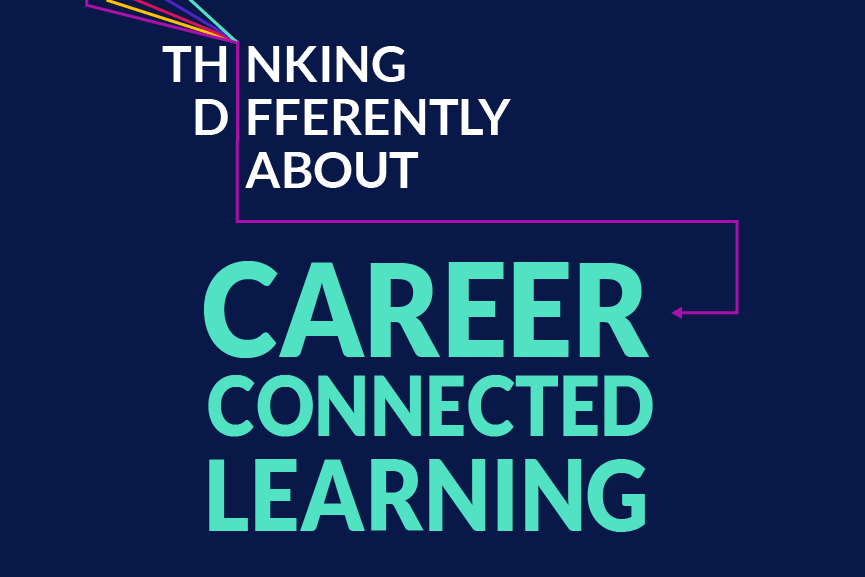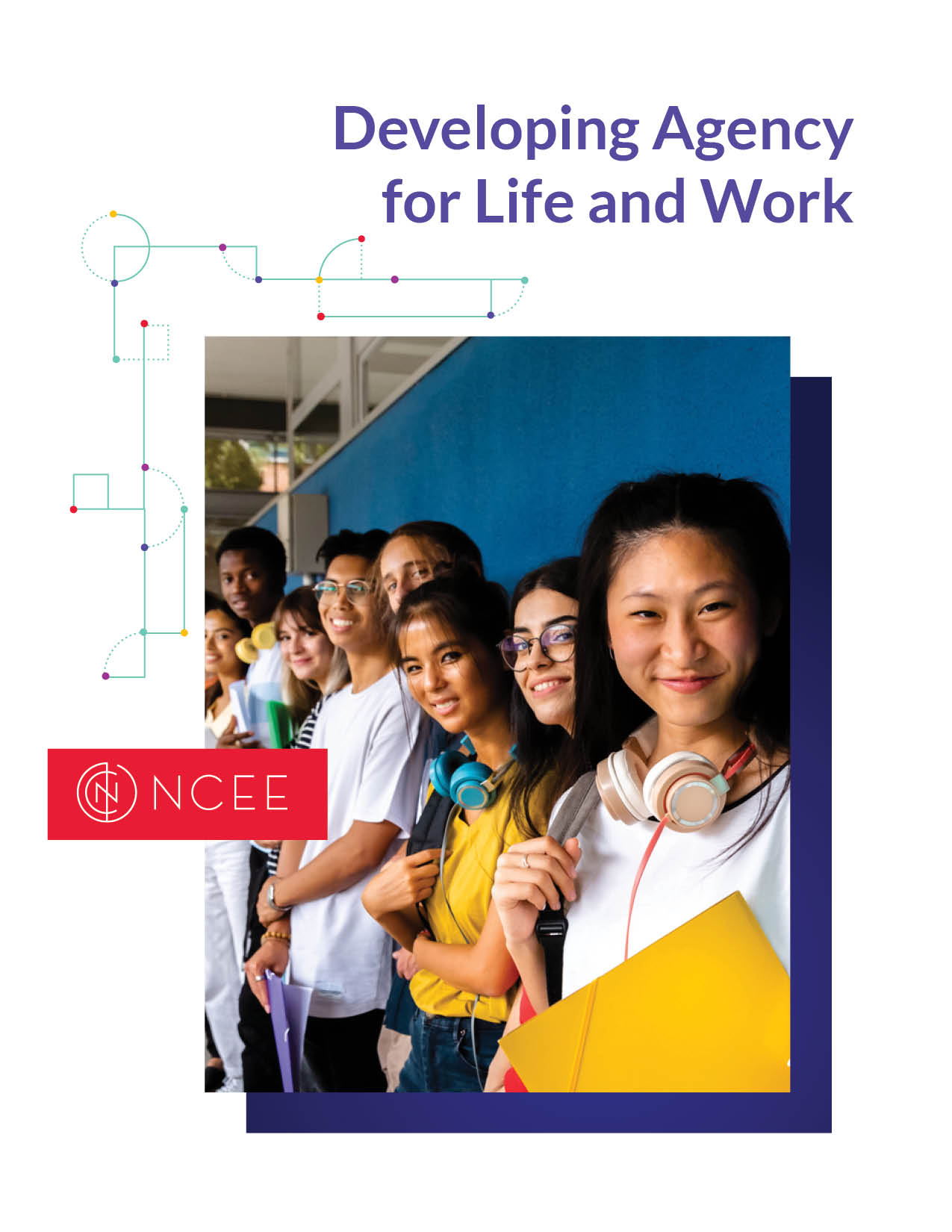
The two volume report, What Does It Really Mean to Be College and Work Ready: The English and Mathematics Required by First Year Community College Students, is the result of a groundbreaking two-year study, which examined the skills and knowledge in mathematics and English literacy that high school graduates need to succeed in the first year of their community college programs. Roughly 45 percent of our nation’s undergraduates are attending community colleges, according to the American Association of Community Colleges (AACC). About half of those students are training to go directly into the workforce and enter popular fields such as nursing, law-enforcement, auto-mechanics or education, while others are working to complete the first two-years of a four-year degree program.
The study found that students are failing to learn the basic math and English skills and concepts needed for success in community colleges, and students who cannot succeed in the first year of a community college program are surely not ready for success in college or the workplace. It includes policy recommendations to enable more U.S. high school graduates to succeed in our community colleges.
What others are saying about the report:
“With all the attention being devoted to America’s educational system — underperformance in K-12, obsolescent financial models in our state universities — we have overlooked one of the system’s most important elements: our community colleges. These institutions enroll nearly half of our college students, teach much needed skills in the trades, and prepare students for four-year degrees. The findings described in this report will surprise some readers — but deserve careful consideration by all who care about America’s ability to preserve or improve America’s standard of living.”
Norm Augustine
Retired Chairman and CEO
Lockheed Martin Corporation
“This document is an eye-opener, based on empirical data in selected community colleges. Its findings suggest that community colleges may be lowering their expectations to meet the level of unpreparedness of graduates of high school. Because of the growing intensity of worldwide economic competition, its message is stark. I would hope readers will consider how learning expectations of middle school, high school and community college programs can rise, and whether we can encourage stronger teaching and learning at all levels for our students.
Eva L. Baker
Co-Director
National Center for Research on Evaluation, Standards & Student Testing (CRESST)
“For many students — especially low-income and minority students — community college is increasingly their gateway to a productive and fulfilling career. Yet as this report rightly points out, our system is failing to prepare them with the type of instruction and rigorous curriculum they need when they need it.”
Cynthia Brown
Vice President, Education Policy
Center for American Progress
“This is truly impressive work about what really matters. I was struck by its intelligence and clarity. Common Core implementation is a huge next step in ensuring that our nation’s students are college- and career-ready. This analysis by NCEE of community college curriculum as compared to what students are learning at the K-12 level points to some troubling gaps in our education pipeline that, if not addressed, will imperil our ability to prepare the next generation.”
David Coleman
President and CEO
The College Board
“The report, What Does It Really Mean to Be College and Work Ready?, reveals one of education’s deep dark secrets, namely, that students are not being challenged enough in high school or in community colleges. Furthermore, the report raises the critical issue of whether it is right or appropriate to require all students to be held accountable for learning content that has no relationship to their future educational pursuits. More than aligning high school and college expectations by means of standards statements, the nation’s education system needs to come to grips with what, precisely, is being taught, its relevance and value, and the degree to which students are challenged to retain and apply key learnings, rather than simply piling new content on them.”
David Conley
Director
Center for Educational Policy Research, University of Oregon
“This report is not suggesting going back to the evils of tracking that denied the opportunity of preparing for college to too many students; it is, however, suggesting that states build alternative curriculum pathways to college that are options for students, not placements.”
Phil Daro
Senior Fellow for Mathematics
Pearson-America’s Choice
“Once again, NCEE has done a great service by documenting the facts and providing solutions to a major problem in American education, which everyone, including educational leaders, is sleeping through. In Massachusetts alone, students taking remedial courses at the community college level largely fail and it is at an annual cost of tens of millions of dollars and involves tens of thousands of students. NCEE points out that it is time for the education system ⎯ starting at the middle school level, to align content, raise it over time and at long last properly prepare students for the world of college and the workplace.”
David P. Driscoll
Chair, National Assessment Governing Board
Former Commissioner of Education for the
Commonwealth of Massachusetts
“Three glum cheers for NCEE for uncovering yet another painful set of unwelcome truths about American education — and the makings of yet another reform agenda for community colleges and K-12 schools alike. I’m not sure the system can handle this challenge, too, but I don’t see how many of today’s other needed education reforms can succeed it if is neglected.”
Chester E. Finn, Jr.
Senior Fellow, Hoover Institution, Stanford University &
President, Thomas B. Fordham Institute
“What Does it Really Mean to Be College and Work Ready? provides a platform for a much needed debate around how our community colleges — which are critical to the United States’ ability to prepare individuals for middle skills careers — partner with high schools, set expectations and go about the business of teaching and learning.”
Kimberly Green
Executive Director
National Association of State Directors of Career Technical Education Consortium
“What Does It Really Mean to Be College and Work Ready? validates our understanding that community college students must have the knowledge and skills required for existing and future high-tech jobs in a global economy. The report also affirms the imperative that we create a culture of collaboration in creating seamless educational pipelines for students from K-12 through post-secondary education and into the workforce. Our students are waiting.”
Rufus Glasper
Chancellor
Maricopa County Community College District
“One of the biggest economic challenges this country faces is the high number of students graduating high school unprepared for success in college. We’ve spent long enough studying the problem. Now it’s time to do something about it.”
Joel Klein
Executive Vice President
News Corp.
“This report is an essential read for state education leaders dedicated to implementing policies that make sense for the realities of today’s student and the demands that they will face in higher education and the workforce. States are leading implementation of the Common Core State Standards and focused on how best to equip our students with the right knowledge and skills to prepare them for life after high school.”
Chris Minnich
Executive Director
Council of Chief State School Officers
“We need to encourage states to take advantage of the flexibility built into the Common Core State Standards to build alternative math pathways through the last two years of high school that are aligned with student interests and career plans. If the Report’s assertion is correct — that only 5 percent of jobs require the mathematics embodied in the calculus pathway — then our education system should focus more on the mathematics that most young people will actually use in their civic and work life, e.g. statistics, data, probability.”
Robert Schwartz
Francis Keppel Professor of Practice of Educational Policy
Harvard Graduate School of Education
“NCEE’s report provides a much clearer picture than we have ever had about the knowledge and skills students need to be ready for college and careers. The implications for our elementary, middle and high school teachers are profound. The report tells us that our teacher preparation programs, our licensing and certification systems, and our professional development investments must all result in a teaching force with strong conceptual understanding in mathematics, reading and writing and the pedagogical skills to teach students to apply that knowledge to real-world tasks. Educators must take this report seriously and use it to shape the future of the profession.”
Ron Thorpe
President and CEO
National Board for Professional Teaching Standards
Media Coverage:
What is taught to high-schoolers needs examination, Times and Democrat, May 24, 2013
What Math Do College Students Need?, Right on the Left Coast: Views from a Conservative Teacher, May 11, 2013
Feedback Loop: More About Math Education, NPR StateImpact Florida, May 10, 2013
NCEE Study Faults High Schools on Student Community College Preparedness, SayCampusLife, May 9, 2013
Race to the Bottom: Why Community Colleges Need to Buck Up, Yahoo! Voices, May 9, 2013
How Much Mathematics is Enough, The Swail Letter on Higher Education, May 9, 2013
Study, Schools and Colleges Are Teaching the Wrong Type of Math, State Impact, May 9, 2013
Why Johnny can’t read…or write or do math, Tribune-Review, May 9, 2013
How to Save Billions and Better Prepare Students to Make Billions, Huffington Post, May 8, 2013
Many Community College Freshman are Unprepared for College Coursework, Report Reveals, CityTownInfo.com, May 8, 2013
Students not getting best education, The Daily Progress, May 8, 2013
New Course Recommended for Some High-School Students, Wall Street Journal, May 7, 2013
Study: Community colleges lack rigor, but incoming students ill prepared, Christian Science Monitor, May 7, 2013
Remedial math classes unnecessary at community college level, study says, McClatchy, May 7, 2013
High Schools Set Up Community-College Students to Fail, Report Says, The Chronicle of Higher Education, May 7, 2013
Low Bar, High Failure, Inside Higher Ed, May 7, 2013
A serious disconnect in education, Community College Times AACC, May 7, 2013
Skills From High School Don’t Match College Demands, Education Week, May 7, 2013
NCEE: Rethink readiness, Hechinger Report, May 7, 2013
NCEE: Only 5% need calculus, Linking and thinking on education, May 7, 2013
Students not getting best education, The Daily Progress, May 8, 2013
Study, Schools and Colleges Are Teaching the Wrong Type of Math, State Impact, May 9, 2013
Why Johnny can’t read…or write or do math, Tribune-Review, May 9, 2013
Feedback Loop: More About Math Education, NPR StateImpact Florida, May 10, 2013
How to Save Billions and Better Prepare Students to Make Billions, Huffington Post, May 8, 2013
Many Community College Freshman are Unprepared for College Coursework, Report Reveals, CityTownInfo.com, May 8, 2013
How Much Mathematics is Enough, The Swail Letter on Higher Education, May 9, 2013
Race to the Bottom: Why Community Colleges Need to Buck Up, Yahoo! Voices, May 9, 2013
NCEE Study Faults High Schools on Student Community College Preparedness, SayCampusLife, May 9, 2013
What Math Do College Students Need?, Right on the Left Coast: Views from a Conservative Teacher, May 11, 2013
Release Event Video
On May 7th, during a day-long meeting, key education and policy leaders joined NCEE to discuss the results of the study and its implications for community college reform, school reform, teacher education, the common core state standards, and vocational education and the workplace.




